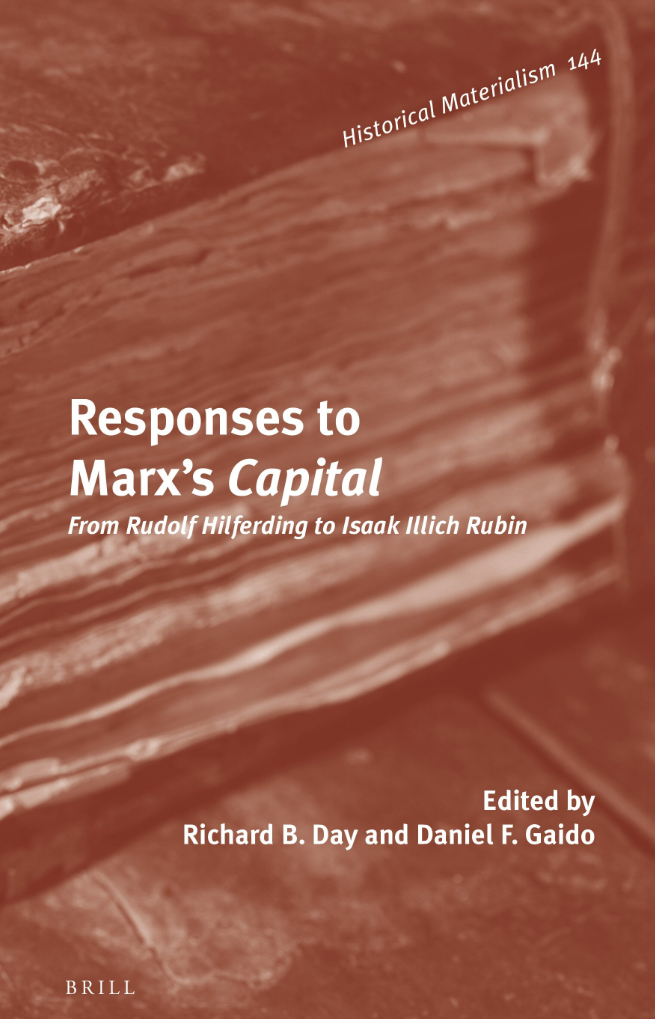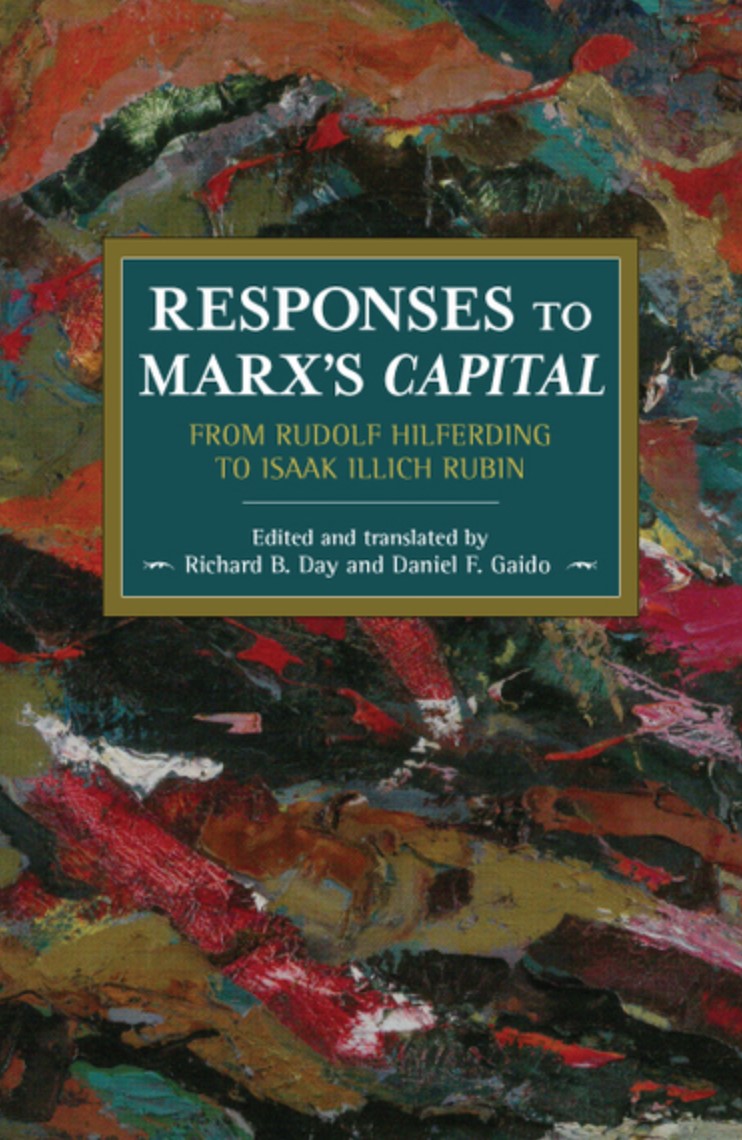Richard B. Day and Daniel Gaido (eds)
Biographical Note
Richard B. Day, Ph. D. (1970), University of London, is Professor of Political Economy at the University of Toronto, Canada. He has published extensively on Soviet economic and political history, including Leon Trotsky and the Politics of Economic Isolation (Cambridge University Press, 1973).
Daniel F. Gaido, Ph.D. (2000), University of Haifa (Israel), is a researcher at the National Research Council (Conicet), Argentina. He is the author of The Formative Period of American Capitalism (Routledge, 2006) and co-editor, together with Richard B. Day, of Witnesses to Permanent Revolution: The Documentary Record (Brill, 2009).
Readership
All interested in the history of socialism and Marxist political economy, particularly the reception of Marx’s economic works and the polemics between Marxist and bourgeois economists.
Table of Contents
Introduction: The Early Reception of Marx’s Economic Works
Why Does Marx Matter?
Richard B. Day
1 Karl Marx’s Point of View in his Political-Economic Critique: A Review of Karl Marx, Capital: A Critique of Political Economy (1872)
Illarion Ignat’evich Kaufmann
2 The History of a Book [On the Fortieth Anniversary of the Publication of Capital, Vol. I] (1907)
Otto Bauer
3 “The Poverty of Philosophy” and “Capital” (1886)
Karl Kautsky
4 A Contribution to the Critique of Karl Marx’s Economic System (1894)
Werner Sombart
5 Theories of Surplus Value (1905)
Heinrich Cunow
6 Marx’s Critique of Ricardo (1906)
Gustav Eckstein
7 The Prehistory of Marxian Economics (1911–12)
Rudolf Hilferding
8 Theories of Surplus Value (1910)
Otto Bauer
9 A Contribution to the Understanding of Marx’s Research Method (1910)
Heinrich Cunow
10 On the History of the Theory of Value (1903)
Rudolf Hilferding
11 Karl Marx’s Formulation of the Problem of Theoretical Economics (1905)
Rudolf Hilferding
12 Back to Adam Smith! (1900)
Rosa Luxemburg
13 Werner Sombart’s Modern Capitalism (1903)
Rudolf Hilferding
14 The Psychological Tendency in Recent Political Economy (1892)
Conrad Schmidt
15 The Austrian School (1926)
I.I. Rubin
16 Marx’s Teaching on Production and Consumption (1930)
I.I. Rubin
17 Fundamental Features of Marx’s Theory of Value and How it Differs from Ricardo’s Theory (1924)
I.I. Rubin
18 Towards a History of the Text of the First Chapter of Marx’s Capital (1929)
I.I. Rubin
19 Essays on Marx’s Theory of Money (1926–8)
I.I. Rubin
20 The Dialectical Development of Categories in Marx’s Economic System (1929)
I.I. Rubin
Appendix: Pages from the Life and Creative Work of Economist I.I. Rubin (1992)
Lyudmila L. Vasina and Yakov G. Rokityansky
References
Index


